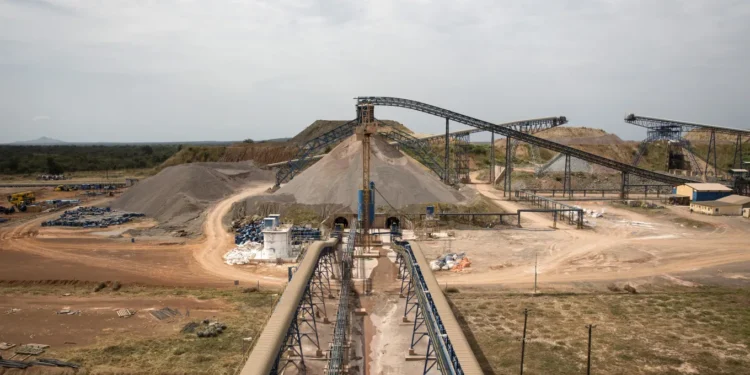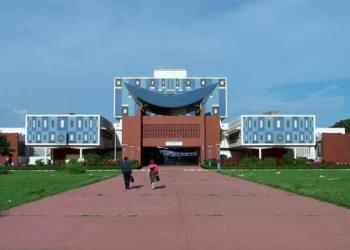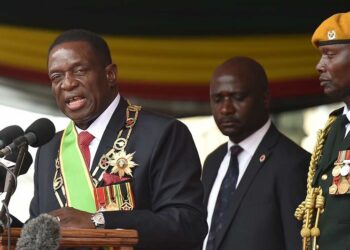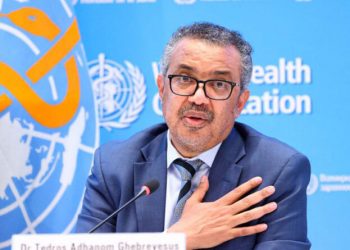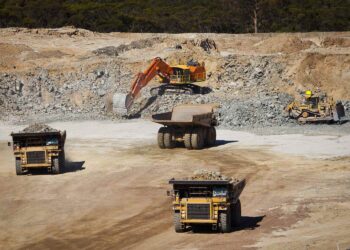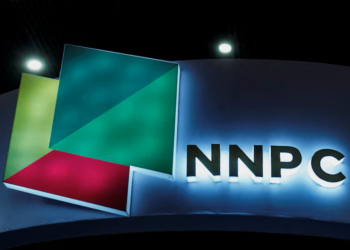Africa has significant natural resource wealth. The region is home to the world’s largest arable landmass; the second largest and longest rivers (the Nile and the Congo); and its second largest tropical forest. The total value added of its fisheries and aquaculture sector alone is estimated at USD 24 billion. In addition, about 30% of all global mineral reserves are found in Africa. The continent’s proven oil reserves constitute 8% of the world’s stock, and those of natural gas amount to 7%. Minerals account for an average of 70% of total African exports and about 28% of gross domestic product.
Throughout the world, resource-rich countries have sought to manage their extractive resources either through market-based approaches such as resource liberalism or state developmentalist approaches. In many developing countries, such as those in Latin America and Africa, state developmentalism expressed in resource nationalism and/or neo-extractivism has become a dominant approach to extractive resources governance in an attempt to increase the socio-economic contribution of resources and address the negative ramifications of a neoliberalized resource governance.
As an approach to resource governance, resource liberalism is an offspring of neoliberal reforms that engulfed the world from around the 1980s. In relation to the resources sector, resource liberalism entails ‘a state relying on international market mechanisms for the development of its natural resources through relatively liberal trade and investment policies.’ Reliance on international market mechanisms for management of national resources involves a range of policy choices, including abandoning restrictive trade policies, adopting and maintaining an open foreign direct investment (FDI) regime to attract multinational corporations, and avoiding restrictive local content conditions on firms.
This was the approach emphasised and supported by the international financial institutions in their support for Africa’s economic recovery. The World Bank, for instance, pursued this approach, as evidenced in its 1992 Strategy for African Mining. In this strategy, the Bank advised resource-rich African countries to liberalise their resource sector in order to attract foreign capital and technology into their mining sector.
Accordingly, African governments reformed their mineral policy and legal and regulatory regimes along the lines of the Bank’s Strategy, resulting in what some analysts have described as investor-friendly and over-generous mining codes. However, as the promised benefits of resource liberalism were not forthcoming and the public grew more impatient with the strategy, further reforms were unavoidable. This is the context in which resource nationalism appealed to policymakers in Africa and beyond. Resource nationalism is a complex issue. It is rooted in resource-rich countries’ historical, cultural, political, and economic structural evolution. The evolution of the supply and demand structure of the global mineral metal market influences it. It is closely linked to the “economic-political” system within resource-rich countries.
Interest groups around natural resource wealth have multidirectional, contradictory, and incommensurable claims. Groups may find an equilibrium of interests, such as investment in Indigenous communities by international resource companies or establishing local metal processing plants. This game equilibrium can be broken as economic conditions and domestic ideologies change. At this point, resource-nationalist behaviour is risky. This is when the government can break the pact and implement resource-nationalist trade/industrial policies.
As a result, we can see that resource nationalism often emerges with high metal and energy prices and subsides when metal and energy markets are depressed. Part of this is that rising global resource prices generate excess profits and change the benefit functions of interest groups. Resource country governments want to capture the producer surplus from higher prices. Domestic interest groups, in turn, want to capture the economic dividends of rising global resource prices.

There is growing concern that whereas resources were once a means of funding and waging armed conflict for states to a political end, armed conflict is increasingly becoming the means to individual commercial ends: gaining access to valuable resources. This demise of ideology and politics informs, for example, the assumption of the UN Security Council that the control and exploitation of natural resources motivates and finances parties responsible for the continuation of conflict in the Democratic Republic of Congo.
However, in recent times, authorities in West and Central Africa have announced steps aimed at tightening their control of precious commodities, highlighting the resource nationalism trend sweeping the continent. On the other hand, the public wealth attributes of natural resources make it difficult to escape from ideological influences. Populism, resource extraction, elections, and corruption are often closely linked. Populism as a stimulant of political activity has made resource nationalism a fashionable approach to resource governance.
Understanding the Complexities of Resource Nationalism in Today’s World
From the nationalisation of resources in the 1960s and 1970s to the metals super-cycle of the first two decades of this century, resource nationalism has recurred and become deeply embedded in the world economic order. There is a combination of the desire of resource countries to seek economic self-empowerment and economic independence, as well as the aim of using resource rents to support domestic political games.
Whatever the motives for resource nationalism, it is difficult to avoid the fundamental question of whether natural resource wealth can contribute to national economic growth. The empirical evidence is overwhelmingly negative, with resource endowments dragging down the economic growth rate in resource countries, i.e., a ‘resource curse.’ Corrupt political institutions, self-serving elites, poor governance capacity, and deteriorating legal and business environments have been used to explain the political economy logic behind this phenomenon.
The global transition to low-carbon economies has fuelled demand for so-called critical minerals (lithium, cobalt, nickel, graphite, manganese, copper, and some rare earths). These minerals are ‘critical’ for the ongoing green transition of the global auto industry, and they are in high demand for energy storage systems, artificial intelligence data centres, wind turbines, and defence industries.
Across African countries, the growing demand for these minerals and metals has triggered conflict among artisanal miners, political elites, and Chinese miners over the control of mineral-rich lands. In Zimbabwe, conflict over the control of lithium-rich lands has led to the violent eviction of artisanal miners, who had occupied lithium claims belonging to the government and private companies.
Rising EV battery demand is the greatest contributor to increasing demand for critical metals like lithium. Battery demand for lithium stood at around 140 kt in 2023, 85% of total lithium demand and up more than 30% compared to 2022; for cobalt, demand for batteries was up 15% at 150 kt, 70% of the total. To a lesser extent, battery demand growth contributes to increasing total demand for nickel, accounting for over 10% of total nickel demand. Battery demand for nickel stood at almost 370 kt in 2023, up nearly 30% compared to 2022.
The theory of two-tier games was initially used to address the problem of how national leaders can strike a balance between domestic and international games in international negotiations. With the growth of international trade and foreign investment, the two-tier game has been expanded to include international trade, outward investment, and the negotiation of regional integration agreements. Host governments are faced with balancing attracting foreign investment and capturing resource wealth.
Resource nationalism is rooted in the internal ordering of resource rents within countries, but it also faces constraints on foreign investment. Rents can be seen as a form of “ground rent” in classical economics. Host countries and transnational corporations compete for the superior economic benefits of favourable natural conditions (ore grades, natural monopolies). Host countries consider mineral reserves to be “owned” by the state. But they also need foreign investment and technology to help grow their resource sectors.
At the same time, governments want to keep more resource rents in their countries to fulfil social, economic, and political objectives. The limited nature of resource rents determines the irreconcilability of conflicts at both international and domestic levels. Rational behaviours made by the government of the resource country at one level are often seen as irrational at the other level and may ultimately lead to unfavourable consequences. The crux of the matter lies in the winning set, the set of all international levels that can reach an agreement supported by interest groups at the domestic level.
The Double-Edged Sword of Resource Nationalism in Sub-Saharan Africa
In parallel to African governments uniting their ambition to develop green projects, there has been a rising trend of African states taking action to increase their control of mining activities and related profits. This movement, which has been described as “resource nationalism”, manifests itself in the various measures taken by countries such as Tanzania, the Democratic Republic of Congo (DRC), and more recently Mali, Burkina Faso and Niger. In these important hubs for natural resources, each government has introduced new mining laws, coinciding with their respective military coups.
Resource nationalism may manifest itself through a variety of state actions including seizure of mining facilities, equipment, and resources belonging to foreign investors; revocation of mining licences; increases in mining taxes and royalties; and any other legislative reforms directly or indirectly affecting existing investments.
For instance, Niger plans to nationalise an uranium mine operated by the French nuclear firm Orano as it continues to pivot away from the former colonial ruler, France. The announcement comes as military authorities in the west African country tighten their grip on foreign companies and civil society. Tensions have simmered for months between Niger’s military government and the French company, and relations between Niamey and Paris have deteriorated.
Likewise, the Democratic Republic of Congo has extended by three months a ban on exports of cobalt in a bid to curb oversupply of the electric vehicle battery material, the country’s regulatory agency has said. According to report, DR Congo, the world’s top cobalt supplier, imposed a four-month suspension on exports in February after prices had hit a nine-year low at just $10 a pound.
In June, a court in Mali placed Barrick Mining’s Loulo-Gounkoto gold mining complex under provisional administration for six months. Meanwhile, Barrick Gold has been in conflict with Mali’s military rulers over alleged unpaid taxes and unfair contracts with past governments. The dispute culminated in an arrest warrant in December for Barrick CEO Mark Bristow and the company’s offer to pay $370 million to the government. Nonetheless, Ulf Laessing, head of the Sahel programme at Konrad Adenauer Foundation think tank in Mali noted that “Mali’s conflict with Barrick and other Western mining firms has dented the investment sentiment, limiting Mali’s options to Russian and maybe Chinese firms.”
In Guinea and Mali, the greater resource nationalism reflects coups that have brought to power strongly nationalistic leaders, seeking greater domestic sovereignty and reduced influence of former colonial powers, particularly France. This attitude has proved strikingly popular when a region historically largely under French control – including the four countries under review – is showing strong anti-French sentiments. Therefore, it is evident, therefore, that many of the socio-economic structures that underpin mining in some of the world’s biggest mining markets are now considered ineffective, or at least in need of reform, and the rise of resource nationalism could be one kind of response to this growing frustration.
Resource-rich African countries often offer foreign-owned mining companies’ favourable treatment, in the hope that FDI will transform their economies. Yet the evidence on the ground suggests that there is no direct link between large-scale mining and local economic development. Examples from Zimbabwe, Zambia, Democratic Republic of Congo (DRC), Madagascar and many other African countries show that large-scale mining investments often fail to deliver on jobs and economic benefits for the local population.
Indeed, across Africa the number of people employed in large-scale mining is negligible, compared to the small-scale mining sector. For example, unemployment and poverty remain high in the mineral-rich Copperbelt of Zambia and DRC, while copper and cobalt mining has created enclave economies, bringing minimal benefit to the local people.
Resource Nationalism in Sub-Saharan Africa: A Game Changer or Risk?
An intent to take greater control over natural resources and promote local processing is evident across Côte d’Ivoire, Guinea, Mali and Senegal, driven by political instability, inflation and increased global demand for resources such as cocoa, oil and gas, bauxite and gold. Stricter local content provisions, demands for increased state shares of revenue, higher taxes and requirements that companies commit to greater local processing of resources are still likely in the one- to three-year outlook in all four countries.
Observers say different factors are driving resource nationalism – seeking to extract more domestically generated value from locally produced resources – in the four countries. Common risk indicators include political instability, inflation and rising global demand for the commodities they produce.
Meanwhile, after Chad, Angola and the Republic of Congo approached the IMF for support, the multilateral lender insisted on the renegotiation of their natural resource-backed loans. At least 11 African countries have taken dozens of loans worth billions of dollars secured with their natural resources since the 2000s, and China is by far the top source of funding through policy banks and state-linked companies. Western commodity traders and banks, such as Glencore, Trafigura and Standard Chartered, also have funded oil-for-cash deals, notably with the Republic of Congo, Chad and Angola.
Besides, Congo has been looking to review the infrastructure-for-minerals agreement it signed with China in 2008 over concerns it gets too few benefits from the arrangement. That grants Chinese firms Sinohydro and China Railway Group a 68% stake in a joint venture for copper and cobalt with Congo’s state mining company, Gecamines. In 2023, Congo’s state auditor demanded China’s infrastructure investment commitment be increased to $20 billion from the original $3 billion to match the value of the resources sold by the state under the deal. China rejected the auditor’s report.
Today, many African countries, including Zimbabwe, have failed to formalise artisanal and small-scale mining (ASM), a vital source of jobs for unemployed youths and peasants. This reluctance has exacerbated the poverty in both urban slums and rural areas. Although formalisation of the ASM sector could help reduce unemployment and deprivation, the market-driven policies adopted in the 1990s have led to a preference for large-scale mining investors, even where laws and policies are in place to formalise the small-scale mining sector.
While resource nationalism often involves disputes between the host country and international capital over expropriation, taxation, export, and local content policies. Policymakers must have good reasons to act when they know they will lose foreign investor confidence. The continent should also use its vast endowments of critical minerals to chart its own green energy transition trajectory, grounded in its industrialization objectives, while asserting itself as a pivotal player in global climate action.
A transition towards green energy is imperative for Africa, a region accounting for 80% of the 733 million people globally without access to electricity and 39% of the 2.4 billion people without access to clean cooking. Also, a review of existing investment treaties and mining contracts is essential. A total of 910 bilateral investment treaties have been signed by African states, out of which 548 are still in force, the majority of which have been signed more than two decades ago. These ‘old-generation treaties’ contain several wide-reaching investor protections with little rights for African states. In the absence of reform, disputes will continue to rise on the Continent.















































